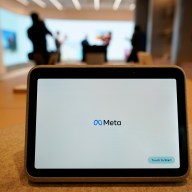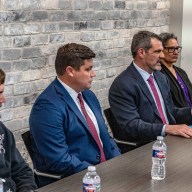The innovative BedZED (Beddington Zero Energy Development) in southern London was designed to be zero carbon.
Solar panels and wind cowls, plus the intelligent design, changes the energy performance of the homes. Overall, energy use in the units is reduced by 70 per cent compared to other homes built in 2002. In addition, 20 per cent of electricity used on site is produced by the photovoltaic panels, which convert light from the sun.
“When the new biomass plant is running, which should be next year, BedZED will be zero carbon once again, like when the old one was working,” says Sue Riddlestone, executive director of BioRegional, an entrepreneurial charity with solutions for sustainable living.
This English eco-village was designed by architect Bill Dunster and developed by Peabody Trust and BioRegional.
“We have houses, offices and businesses where we developed a sustainable lifestyle,” Dunster said.
Besides energy saving, people try to buy food from local producers and to use public transportation.
After seven years, a lot of people who moved initially are still living there and new residents have joined them.
“Even with large families, they are using the car club — a car-sharing system through the Internet,” explains Riddlestone.
Houses to rent or buy come regularly to the market and the price is the same as the average in the region.
“You save a lot in your energy and water bill and get a bigger sense of community. People praise the quality of life. The fact that there are no cars in the central area makes it is easier to walk, talk and meet your neighbours: it’s good for the environment but also for the community. It is a healthier, happier lifestyle,” she sums up.
BioRegional was established with the aim of taking an entrepreneurial approach to bringing local sustainability into the mainstream of our everyday lives.
BioRegional Development Group focuses on research, education and building working examples of how sustainable products and services can be made economically viable and easier for people to adopt.
Where opportunities to bring further environmental benefit have existed, the charity has been able to establish related businesses which have grown out of the work of the charity. Each BioRegional business is structured to reflect the needs of the industry and the stakeholders.
Charity trustees are not able to have commercial interests in the BioRegional businesses, retaining the charity’s independence and the ultimate integrity of the BioRegional brand.
















